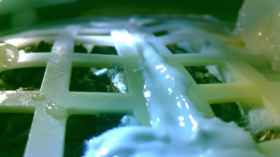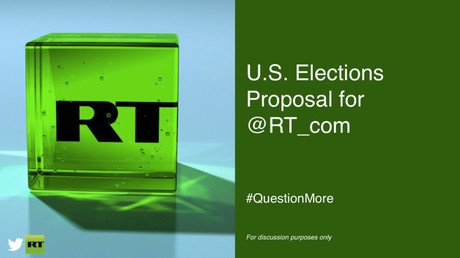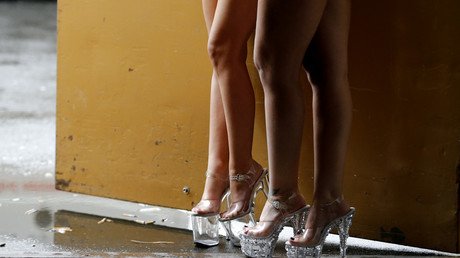China becomes 1st nation to grow biological life on the Moon

China’s Chang’e-4 probe has successfully germinated seeds on the dark side of the Moon in a miniature, artificial biosphere, providing hope for the future of sustainable, long-distance manned space travel.
The probe conducted the first-ever soft landing on the dark side of the Moon on January 3 following a 20-day journey from Earth. En route, the craft was carrying cotton, rape, potato, arabidopsis (rock cress) seeds, as well as fruit fly eggs and yeast, kept in an artificial dormant state in a 7-inch-tall sealed container with air, water, and soil.
All plants were chosen because they are small but hardy plants that can grow in a confined, tough environment.
Also on rt.com New VIDEO shows Chinese probe roaming the ‘dark side’ of the MoonThe seeds only began growing once ground control singled to the probe to begin hydrating them and the cotton seed became the first-ever lunar sprout (plants have been grown on board the ISS, of course).
The cotton seeds were the first to sprout but the rapeseed and potato seeds have now also sprouted, the mission team spokesperson told a press conference Tuesday.
First in human history: A cotton seed brought to the moon by China's Chang'e 4 probe has sprouted, the latest test photo has shown, marking the completion of humankind's first biological experiment on the moon pic.twitter.com/CSSbgEoZmC
— People's Daily, China (@PDChina) January 15, 2019
The plants are contained in a sealed container on board the lander creating a biosphere (an artificial, self-sustaining environment) which the Chinese government is hoping will be an early precursor to much larger scale projects that could one day feed and clothe long-distance astronauts as they journey through space in a sustainable way.
China’s People’s Daily called it “the completion of humankind’s first biological experiment on the Moon.”
“We have given consideration to future survival in space,” professor Xie Gengxin, the experiment’s chief designer, told the South China Morning Post.
“Learning about these plants’ growth in a low-gravity environment would allow us to lay the foundation for our future establishment of [a] space base.”
Like this story? Share it with a friend!














